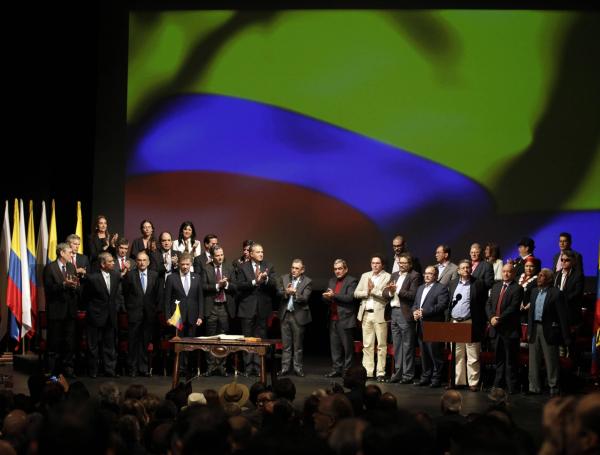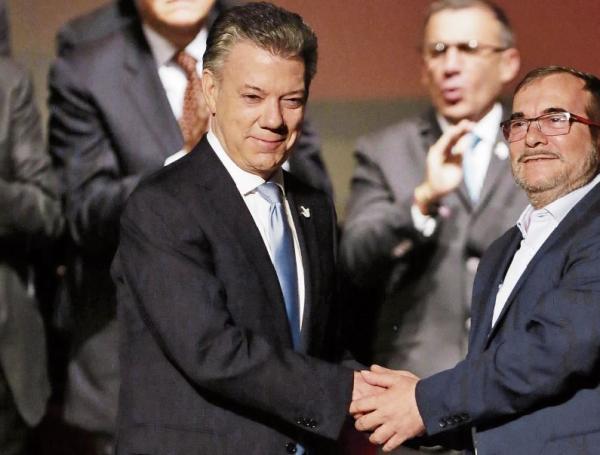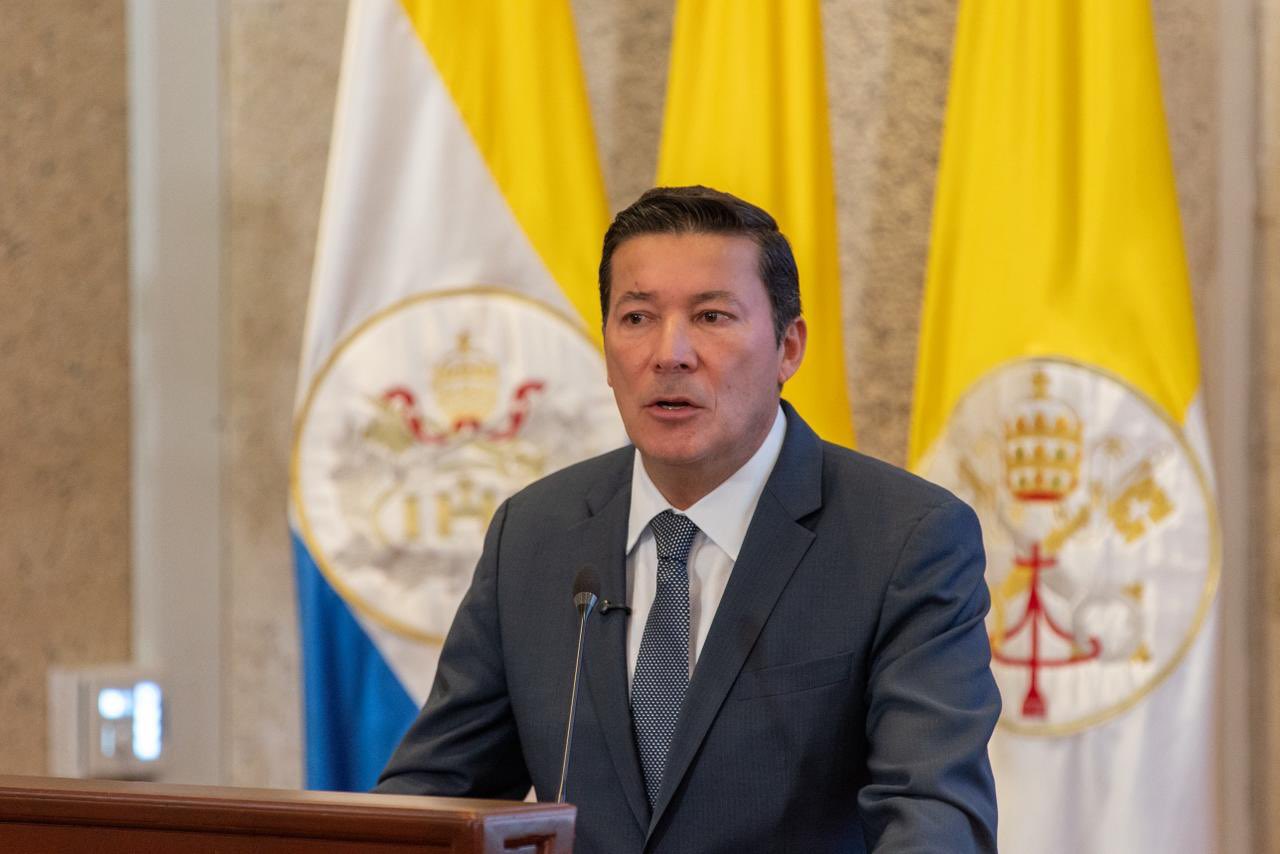The Registry accepts a committee promoting a referendum to repeal the 2016 peace agreement and "total peace": signatures must be collected.

Through Resolution 9509 of 2025, the Registry admitted the registration of a citizens' committee that seeks to call a referendum to repeal the 2016 peace agreement between the National Government and the FARC, as well as the "total peace" law.
The constitutional referendum on repeal is called: "Referendum on the Final Agreement for the Termination of the Conflict and the Construction of a Stable and Lasting Peace" and "Total Peace."

Signing at the Teatro Colón. Photo: ARCHIVE
This initiative is being promoted by citizens Julián Alberto Rocha Aristizábal and Carlos Daniel Jiménez Zambrano . Rocha had previously filed a lawsuit with the Council of State against the recognition of Carlos Pizarro's hat as National Cultural Heritage in June 2024.
In this case, the committee members state the following: "With a broken heart but unbroken hope, we ask for the return of the voice that was taken from us on October 2, 2016. That day we said NO to a poorly made agreement, but they imposed a FAL on us. Today, the facts have proven us right: armed dissidents, recruited children, territories at war, a massively displaced population, and a peace that never came. The FARC leaders have seats, not sentences. We're not asking for revenge, we're asking for dignity. It's time to repeal that failed agreement and build real peace, with justice and truth. For our children. For our victims. For Colombia."

Juan Manuel Santos and Rodrigo Londoño Echeverri. Photo: Archive
Once the referendum project is registered with the National Registrar, the electoral organization will give a six-month period to collect the signatures in support of it. Forms must be submitted with signatures in support equivalent to 5 percent of the electoral roll.
The decision taken by the people through the referendum is obligatory as long as at least a quarter ( 25 percent ) of the citizens who make up the electoral census have participated.
Article 39 of Law 134 of 1994 states that voting on a referendum may not coincide with any other electoral event.
Roy Barreras, one of the protagonists of the cessation of the conflict with the FARC, rejected the initiative. "It is incredible that a small far-right force, heir to the extremism that generated the violence that left 300,000 dead, almost all of them peasants, in the 1950s, proposes returning to that past by repealing the Peace Agreement that ended the 60-year war with the FARC. I assure you that Colombia is not going to convert to the past. We will advance towards a safe, just and peaceful country," he commented on his X account.
The agreement Norway was one of the guarantor countries that supported the negotiations between the Colombian government and the FARC in Havana, which concluded with the signing of the Teatro Colón agreement on November 24, 2016.

The National Registrar, Hernán Penagos. Photo: Registry Office
After eight years of implementation and more than 88 billion euros invested, the peace agreement has not achieved structural changes in the country. This is according to the Comptroller General's Office in its most recent report on the fulfillment of the commitments agreed upon between the government of Juan Manuel Santos and the FARC in Havana. This poor compliance is also evident in the deteriorating security situation in several regions of the country and in the critical situation faced by former combatants living in the Territorial Training and Reincorporation Spaces (ETCR).
Adding to the complex public order landscape for communities and signatories are the enormous gaps in comprehensive rural reform, the increase in the area planted with coca in the country, which went from 146,000 hectares in 2016 to 253,000 in 2023, and the delay in imposing sanctions on those most responsible for serious crimes during the conflict.
Juan Pablo Penagos Ramirez
eltiempo





